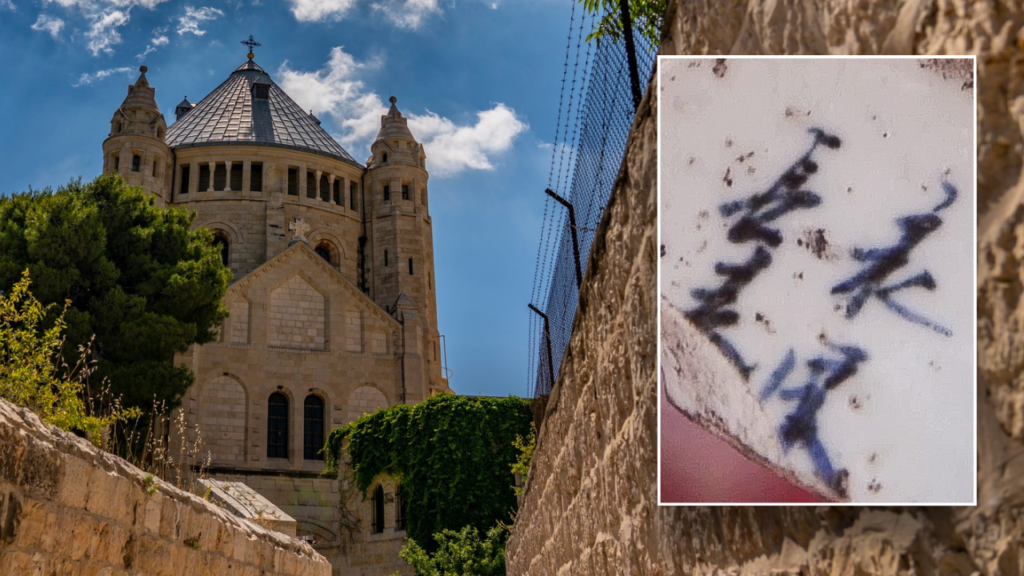Archaeologists have recently made a groundbreaking discovery at the revered site of Mount Zion, with findings that have captured both scholarly and public interest. The Israeli Antiquities Authority (IAA) confirmed that the oldest-known Chinese inscription has been uncovered. This significant artifact was found on a porcelain bowl during a collaborative excavation conducted by the IAA and the Protestant Institute of Archaeology. This discovery serves as a remarkable testament to the historical interactions between the Land of Israel and China.
Dated back to the 16th century, the porcelain bowl features an inscription that reads, “Forever we will guard the eternal spring.” This phrase was discovered protruding from the ground, a fortunate encounter during preparations for the excavation. According to the IAA, archaeologist Michael Chernin noticed the colorful object during a routine clean-up of the site and recognized its importance upon washing it and revealing the inscription written on its bottom.
The excavation yielded multiple artifacts dating from the Second Temple period to the Byzantine era; however, the porcelain bowl surprised researchers with its “unexpected origin.” The bowl is believed to have been manufactured during the Ming Dynasty, specifically between 1520 and 1570, and symbolizes the historical trade relations that existed between Imperial China and the Ottoman Empire—a connection that enriches the narrative of global commerce in ancient times. Interestingly, this bowl is the first one found in Israel inscribed with Chinese text, although other Chinese pottery artifacts have been documented.
Historical records support this discovery, as they indicate robust exchanges between the Ottoman Empire and China during the 15th to 17th centuries. According to chronicles from the Ming Dynasty, around 20 official Ottoman delegations made visits to the imperial court in Beijing during this period. Additionally, travel accounts from merchants of the same era describe the vibrant trade networks and exchanges, including mentions of Chinese merchant colonies in key coastal cities such as Beirut and Tripoli.
The significance of Mount Zion extends beyond this single archaeological find. It is honored in various religious traditions, particularly in Christianity and Judaism. Certain Christian beliefs hold that the Last Supper occurred in the Upper Room, or Cenacle, located on Mount Zion. In biblical texts, the mount frequently symbolizes divine promises and significance, while in Judaism, it is historically notable as the location where the Ark of the Covenant was kept during King David’s reign.
Eli Escusido, the Director of the IAA, commented on the discovery, noting that while evidence of trade relations between merchants in ancient Israel and the Far East has been documented in earlier research—particularly relating to spices—it is especially fascinating to obtain tangible proof of these relations through an inscription in Chinese, found in such an extraordinary location as Mount Zion in Jerusalem.
This archaeological find not only enhances our understanding of the historical connections between different regions but also emphasizes the complexities of trade routes and cultural exchanges that have existed throughout history. The implications of this discovery resonate with the ongoing narrative of shared human experiences across distant lands, becoming a symbolic bridge that connects past civilizations with the present day.
In conclusion, the recent finding of a Chinese inscribed porcelain bowl at Mount Zion underscores the significance of archaeology in unveiling the interconnectedness of historical cultures. The continued exploration at such important sites promises to delve deeper into the story of human civilization and its intricate tapestry of interactions. To explore more lifestyle articles and developments on similar topics, individuals can visit foxnews.com/lifestyle.
Andrea Margolis, a dedicated writer for Fox News Digital and Fox Business, contributed to this intriguing story. Readers interested in sharing insights or story tips are encouraged to reach out via email at andrea.margolis@fox.com.



